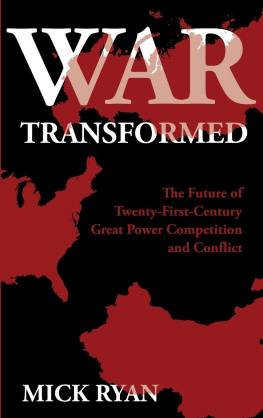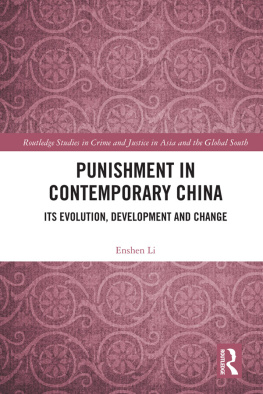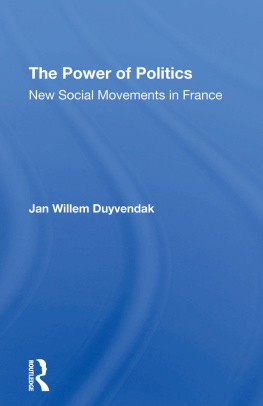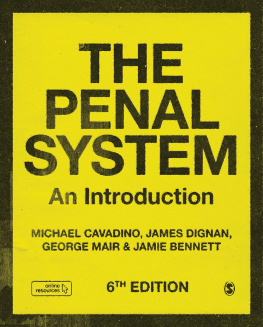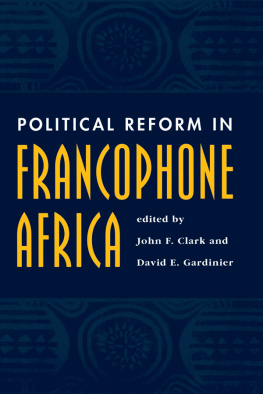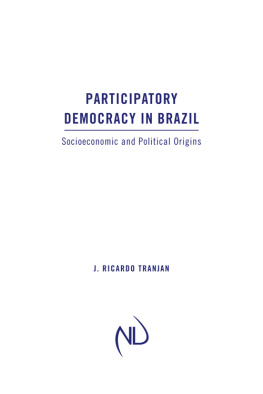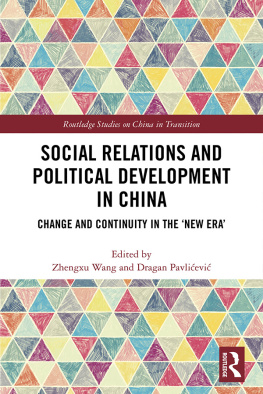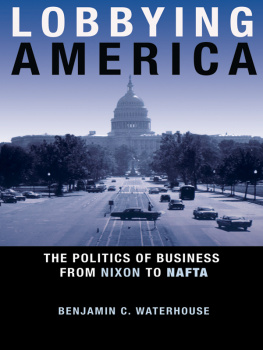David J. Whittaker 1995
This book is copyright under the Berne Convention.
No reproduction without permission.
All rights reserved.
First published in 1995 by UCL Press
Reprinted 2004 by Routledge
11 New Fetter Lane
London, EC4P 4EE
Routledge is an imprint of the
Taylor & Francis Group
British Library Cataloguing in Publication Data
A CIP record for this book is available from the British Library.
ISBNs:
1-85728-114-4 HB
1-85728-115-2 PB
ISBN 978-1-13421-709-0 (ePub)
Typeset in Sabon and Gill Sans.
Printed and bound by Antony Rowe Ltd, Eastbourne
This preface addresses three issues.
First, it will soon become clear that some of the cases discussed in this book will involve men and women with criminal records. In one or two cases they may have been convicted of serious offences. This once prompted a new recruit to INQUEST to observe that:
It seems to me that the thrust of your campaign is not best placed to get the support of the average person in the country. This is not meant as a criticism, but it is because much of your work seems to be concerned with the criminal fraternity, or those who are in some way linked to such. Now, dont get me wrong, I am not saying that... subjects should not be adequately protected, but most of our fellow citizens would look at certain accidents as being a form of justifiable vigilantism.
While those associated with INQUEST would rightly point to a far wider constituency than this suggests, they would not deny this particular strategic difficulty. However, it deserves a sharp riposte. To begin with, the INQUEST archive makes it abundantly clear that many men and women who behave in anti-social ways are not one dimensional; they are often devoted fathers or mothers, dutiful sons or daughters, faithful and loving partners. It is memory of these positive qualities and relationships that drives families and friends forward in their search for the truth and what they often rightly define as their search for justice.
But beyond this, it is not unreasonable to assume from the evidence of history that once we ride roughshod over the liberties of what some might uncharitably describe as the flotsam and jetsam of our society then our own liberties will surely be at risk. That is what I believe; that is why I became involved with INQUEST , and that is why I have written this narrative.
The second point is about academic objectivity. When I wrote my first book on pressure groups nearly twenty years ago, The acceptable pressure group. Inequality in the penal lobby (Farnborough: Saxon House, 1978), a case study of the Howard League and Radical Alternatives to Prison ( RAP ), I had only a very limited firsthand knowledge of penal politics and was not a member of either of the lobby groups that were the subject of the book. The situation today is very different. In the intervening years, I became very active in the penal lobby and was closely involved with INQUEST , the subject of this book. This was first as a fairly inactive member of a fairly inactive Executive Committee in the late 1980s, and then as its chair during a quite vigorous, and no doubt my critics might argue, managerial period between 1991 and 1993. I have not been closely involved since writing this narrative, but remain a committed member.
It is inevitable that so close an involvement will colour my view of events, both before and during my time as a member of the Executive Committee. It is important that readers keep this in mind and register its disadvantages. On the other hand, this inside view has certain obvious things in its favour. Space does not permit me to elaborate on them here other than to say that while I could certainly have gained an understanding of INQUEST s operating framework from a distance, I could never have fully grasped the dynamics of the group as an outsider, understood the personal and professional compromises that were part of its daily being and that impacted directly on its operations. I would like this plus to be added to the balance sheet, though no doubt conventional British and American social scientists will treat it with a long spoon.
The final point is about my own academic interest in pressure groups. This arose in a contradictory way. In the late 1960s and early 1970s I was a postgraduate student in Bernard Cricks newly created Department of Political Theory and Political Institutions at the University of Sheffield. It was here that I came across Stuart Walklands general interest in the study of such groups as one way of avoiding the constitutionalism that he then felt so bedevilled the academic study of British politics, a critique that others have noted (for example, A. G. Jordan & J. J. Richardson, Government and pressure groups in Britain (Oxford: Clarendon, 1987)). Ironically, however, it was Bernard Crick who finally confirmed my interest in pressure groups when he later wrote to me in London explaining that he and Patrick Seyd were putting together a series on good cause groups for The Political Quarterly, of which he was the editor, and would I care to choose one of the following groups they gave me a long list to write on? This I duly did, picking out Radical Alternatives to Prison.
The irony of this was twofold. Any student of politics worth his or her salt will have read Cricks The American science of politics (London: Routledge & Kegan Paul, 1959). His disdain of group theorists like A. F. Bentley and D. B. Truman is pretty clear, and he would often remark between gritted teeth that he was more interested in politics and government than mere pressure groups! However, the second irony is that it was writing about Radical Alternatives to Prison that led to my first book on the penal lobby more generally, and that in due course took me away from political science, or political studies as I still prefer to call it, and into criminology or social policy where I now ply my interdisciplinary trade.
I make these points to explain how I lost touch with the academic study of pressure groups. Except for the late Sammy Finer and David Marsh I cannot put a face to any of the leading theorists in the field, though I might recognize Wyn Grant as we overlapped as undergraduates in the politics department at Leicester University in the 1960s, but here again I had no idea that he was developing his influential insider/outsider framework at about the same time as I was independently writing The acceptable pressure group. Perhaps I should also mention here that I have kept in touch with Robert Benewick who wrote an early, seminal essay on pluralism/pressure groups before developing other academic interests.
It was therefore with some interest that recently I began to catch up on what had happened in the years in between, the years of the New Right. My impression and it is no more than that is that while policy analysts have demonstrated some new insights, I sense an American preference that stresses the primacy of process, community and network above ideology and old-fashioned concerns about government. But perhaps more to the present point, I detect in more general texts on British government and politics the still familiar tendency to draw boundaries around the political system in such a way that it restricts our understanding of how power operates in modern societies and the manner in which some pressure groups, though admittedly not all, contribute to making the exercise of that power accountable. I develop some of these points towards the end of my narrative.



